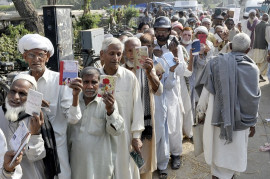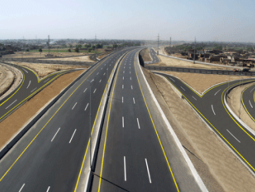
The think tank was formed in 2013 to provide a platform for debate on public policy that is inclusive of stakeholders, civil society, academia and the public. In its new study titled ‘Pak-India Trade Liberalisation - How will Pakistan’s Manufacturing Sector Fare? A Comparative Advantage’, the think tank has identified 18 industries that are facing severe pressure due to a heavy influx of Chinese imports during the first phase of the Pak-China Free Trade Agreement (FTA).
“Despite all the concerns over non-tariff barriers (NTBs) in India, we believe some industries of Pakistan can do well in liberalised trade with them,” said Manzil Pakistan Chief Executive Naheed Memon while talking to the media here on Wednesday. “But we also think that the government needs to support the 18 industries that we have identified in our research report.”
Memon, who happens to be one of the three researchers who compiled the report, said while these industries have performed well in the past, they may not be able to do so during the open trade regime because of the additional pressure of Indian industries. These industries are already facing additional challenges at home such as the energy crisis.
The industries that the report has identified include pharmaceutical, plastics, paper, tools and cutlery, tobacco, footwear, cereal/flour/starch/milk preparations and products, vegetable/fruit/nut/ preparations, inorganic chemicals/precious metal compound/isotope, tanning/dyeing extracts/tannins/pigments, photographic/cinematographic goods, articles of iron or steel, copper, manmade filaments, wadding/felt/nonwovens/yarns/twine/cordage, knitted/crocheted fabric and miscellaneous manufacturing articles.
“The Pakistani government needs to formulate appropriate policies to support these before trade liberalisation is fully implemented as they are expected to suffer by losing their share in the local as well as the global market,” researchers concluded.
The study by Manzil Pakistan investigates the progress of the manufacturing sector at home with the results based on the Revealed Comparative Advantage Index, which is a measure of the disadvantage or advantage a country has in the specialisation of a particular product.
The study labels 18 as ‘Vulnerable Industries’. Out of these 18, five are those which have lost their competitiveness in the global market, while the remaining 13 have shown marginal growth and are struggling to attain or sustain competitiveness. The idea is to attract government’s attention to these industries in order to provide appropriate support.
Though the study recommends protection for some industries, it supports a liberalised trade regime with India.
The study states that there also exist 17 industries for which trading with India might be even more beneficial to Pakistan – in terms of strengthening balance of payments – compared to trading with the current partner China.
The study proposes a further disaggregated level inquiry mainly to identify the most vulnerable products within the vulnerable industries. It also recommends the need to further investigate the reasons and the extent to which they should be protected.
Published in The Express Tribune, April 17th, 2014.
Like Business on Facebook, follow @TribuneBiz on Twitter to stay informed and join in the conversation.
COMMENTS (2)
Comments are moderated and generally will be posted if they are on-topic and not abusive.
For more information, please see our Comments FAQ























While trade liberalization with India will put pressure on some industries, it is perhaps helpful to note that such pressure is not the same as "dependency". In other words, the pressure is likely to spur growth and improve competitiveness. Of course, the same arguments apply to India as well. In general, liberalizing trade is likely to force both sides to shape up, and the benefits will eventually pass on to consumers on either sides.
However, what is puzzling is that Pakistan's relationship with China does not draw similar protests or complaints. This is more puzzling given the dependency of Pakistan on China. Barely a day goes by without reading about China setting up a port in Pakistan, selling locomotives to the railways, setting up power stations, mining coal and metals, building highways, etc. While nothing is truly 100% indigenous anywhere today, these are massive developmental efforts that rob Pakistan off expertise and make it dependent. This should cause Pakistan and Pakistanis more concern than giving India MFN status. Unlike trade in goods which are dynamic and somewhat balanced, the large scale handing-over of developmental projects are very lop-sided. They will cripple Pakistan, prevent it from learning how to design and execute such projects, and leave its heavy industry stunted for years to come.
It may be better if Pakistan were to ask China to provide technical education (at the diploma and degree level), or increase intake of students from Pakistan into Chinese universities so that Pakistan can design and execute its own projects in the next generation.